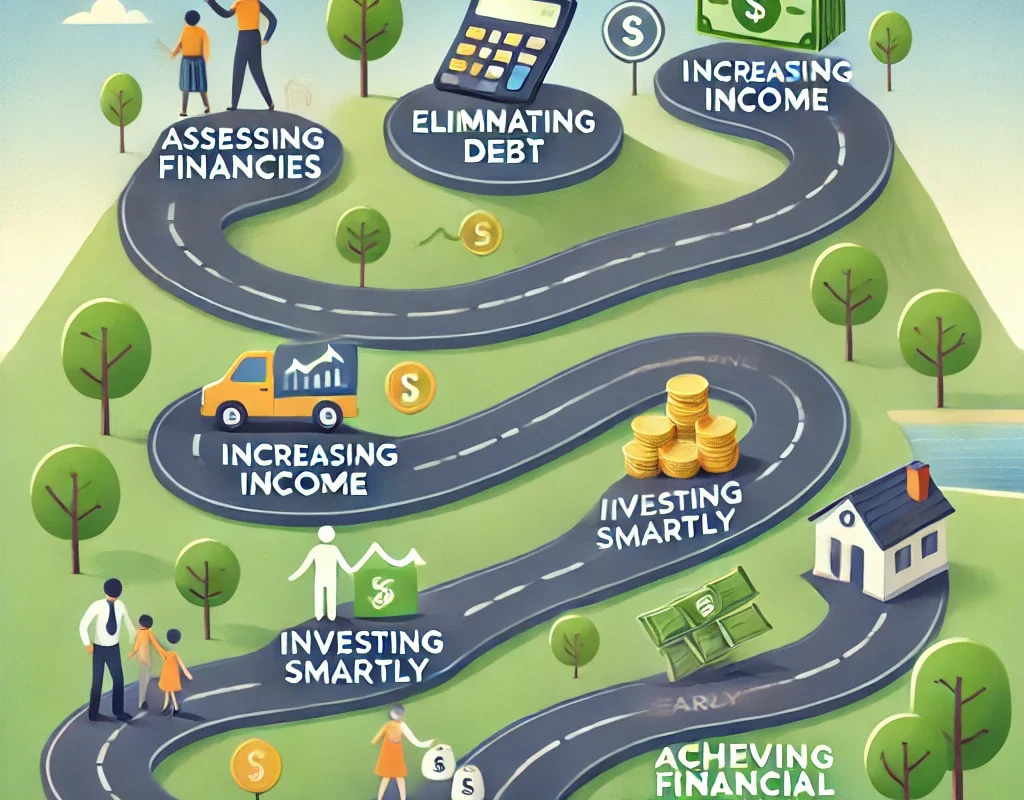Early retirement is not a fantasy reserved for the ultra-rich or the incredibly frugal—it is a realistic goal for anyone who is willing to take a structured, disciplined approach to financial independence. The concept of early retirement has gained significant popularity in recent years, with movements like FIRE (Financial Independence, Retire Early) leading the charge. People now realize that it’s possible to leave traditional work environments much earlier than the standard retirement age of 65 and enjoy a life filled with freedom and flexibility.
The idea of early retirement revolves around two main pillars: generating enough passive income to sustain your lifestyle without working, and achieving financial independence, meaning your assets generate sufficient returns to cover your living expenses indefinitely. The journey may seem long, but with the right steps, discipline, and strategic financial planning, retiring early can become a reality for anyone willing to commit.
Understanding Financial Independence
Financial independence, in essence, means that you no longer rely on a paycheck to maintain your lifestyle. It’s about having enough assets or investments that generate income to cover your expenses without the need to work. Achieving this state is critical to retiring early because once you no longer depend on active income, you gain the freedom to decide how you spend your time, whether that includes paid employment, passion projects, or leisure activities.
In order to retire early, you must build a portfolio of assets—stocks, bonds, real estate, or other income-generating investments—that will provide you with sustainable income. The journey to financial independence involves increasing your savings rate, cutting unnecessary expenses, and making smart investment decisions that will grow your wealth over time.
The FIRE Movement
One of the most popular approaches to early retirement is the FIRE movement, which stands for Financial Independence, Retire Early. This movement emphasizes aggressive savings, investing a large portion of your income, and living a minimalist lifestyle to reach financial independence faster. Advocates of FIRE aim to retire in their 30s or 40s, well before the traditional retirement age.
The core principles of FIRE involve saving at least 50% of your income, or even up to 70% in extreme cases, and investing in low-cost index funds or other diversified portfolios. By living frugally and focusing on accumulating wealth rapidly, FIRE followers can build enough assets to withdraw from their portfolios for the rest of their lives, typically following the 4% rule (which will be discussed later).
Benefits of Early Retirement
The allure of early retirement goes beyond just escaping the daily grind. The benefits extend into many areas of life, offering time freedom, the flexibility to pursue personal passions, and the ability to dedicate more time to family, hobbies, or travel. Early retirees often describe feeling a greater sense of purpose and fulfillment, as they are no longer tied to a job they may not enjoy.
Additionally, retiring early allows individuals to explore new career paths without the financial pressure, volunteer for causes they care about, or invest their time in creative pursuits. Time is the ultimate asset in life, and financial independence offers the freedom to spend it however you wish.
Assessing Your Current Financial Situation
Before embarking on your journey to financial independence, it’s essential to take a comprehensive look at your current financial situation. This step is all about understanding your income, expenses, savings, and debt. Start by tracking your expenses for a few months to get a clear picture of where your money is going. This will help you identify areas where you can cut back and start saving more.
It’s also critical to evaluate your debt. Whether it’s student loans, credit card debt, or a mortgage, carrying too much debt can severely hinder your progress towards early retirement. Prioritize paying off high-interest debt as quickly as possible, and work towards becoming debt-free. Once you’re out of debt, you’ll have more disposable income to invest in your future.
Setting Clear Retirement Goals
One of the most important steps in planning for early retirement is setting clear, actionable goals. Ask yourself, “When do I want to retire?” and “What kind of lifestyle do I envision in retirement?” Defining these goals will help shape your financial plan.
Consider factors such as where you want to live, how much you’ll need to live comfortably, and what activities you’ll want to pursue. Early retirement doesn’t mean that your expenses will disappear—in fact, you may have more time for leisure activities that can cost money. Be realistic about how much you’ll need to save and invest in order to sustain your lifestyle.
Building a Strong Financial Foundation
To retire early, you need a strong financial foundation. This includes having an emergency fund that can cover at least 6-12 months’ worth of living expenses. This fund will act as a safety net for unexpected expenses, such as medical bills or urgent home repairs, without having to dip into your retirement savings.
Additionally, it’s crucial to eliminate consumer debt. High-interest credit card debt and personal loans can eat away at your savings and reduce your ability to invest for the future. Focus on paying off these debts before aggressively saving for retirement. Once you’re debt-free and have an emergency fund in place, you’re ready to start building wealth for early retirement.
Income Strategies for Early Retirement
One of the most effective ways to fast-track early retirement is by increasing your income. The more you earn, the more you can save and invest towards your retirement goals. Consider asking for a raise, seeking higher-paying job opportunities, or starting a side business to bring in additional income.
Freelancing, consulting, and starting an online business are popular options for generating extra income. Additionally, having multiple streams of income can create a financial cushion, helping you reach financial independence faster. Keep in mind that every extra dollar you earn can be funneled into investments, helping you grow your retirement nest egg more quickly.
You Can Also Read : How to Use Passive Income to Support Your Retirement
The Power of Compounding and Investments
Albert Einstein famously called compound interest the “eighth wonder of the world,” and for good reason. Compound interest allows your investments to grow exponentially over time, as the returns on your investments generate additional returns. This snowball effect is key to building wealth for early retirement.
The earlier you start investing, the more time your money has to grow. Even small amounts can turn into significant sums if left to compound over many years. The key is consistency: regularly contributing to your investment accounts, regardless of market fluctuations, ensures that your money is working for you.



